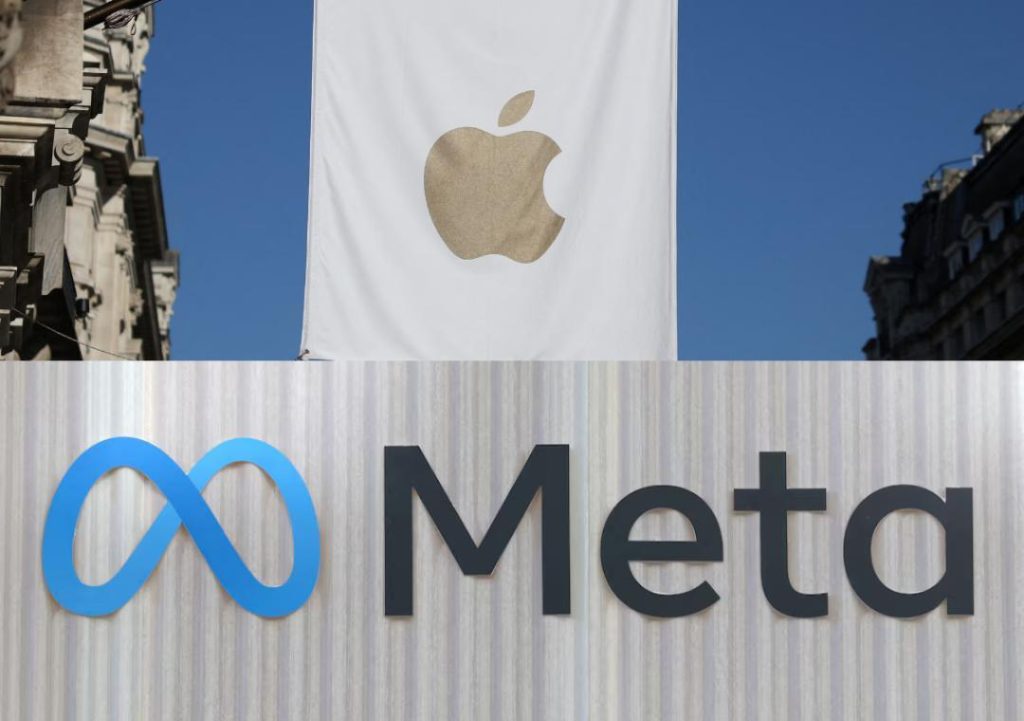
Apple Fined ₹4,872 Crore, Meta Penalised ₹1,948 Crore by EU for Antitrust Violations
In a significant development, the European Union has imposed a fine of ₹4,872 crore on Apple and a fine of ₹1,948 crore on Meta for violating antitrust laws. This move comes after a year-long investigation by the European Commission into whether the companies comply with the Digital Markets Act, which aims to allow smaller rivals into markets dominated by bigger companies.
The European Commission, the executive arm of the EU, has been scrutinizing the business practices of major tech companies, including Apple and Meta, to ensure that they are not using their dominance to stifle competition. The investigation was sparked by concerns that these companies were using their market power to restrict access to their platforms and services, thereby preventing smaller companies from entering the market.
The fines imposed on Apple and Meta are a significant blow to the companies, which have been accused of violating EU antitrust laws. The penalties are not only substantial but also a warning to other tech giants that the EU is serious about enforcing its antitrust laws and promoting fair competition in the digital market.
According to the European Commission, Apple’s fine is related to the company’s restrictions on developers who want to create apps that compete with Apple’s own services. The commission found that Apple’s restrictions were anti-competitive and prevented developers from offering alternative services to Apple’s own offerings. For example, Apple restricted developers from using alternative payment systems, which meant that they had to use Apple’s own payment system, Apple Pay, to process transactions.
Meta’s fine, on the other hand, is related to the company’s acquisition of Instagram, a popular photo-sharing app. The European Commission found that Meta’s acquisition of Instagram was anti-competitive and prevented smaller rivals from entering the market. The commission also found that Meta had restricted access to its social media platforms, including Facebook and Instagram, to prevent smaller companies from using its platforms to reach customers.
Both Apple and Meta have criticized the fines, with Apple calling them “unfair”. In a statement, Apple said that it had received the notice of the fine and was reviewing it. The company added that it was committed to providing a safe and secure environment for its customers and was working to address the commission’s concerns.
Meta has also responded to the fine, saying that it was disappointed with the decision and would review the commission’s findings. The company added that it was committed to promoting fair competition and was working to address the commission’s concerns.
The fines imposed on Apple and Meta are a significant development in the ongoing debate about the role of tech companies in the digital market. The European Commission’s investigation and subsequent fines are a clear indication that the EU is serious about promoting fair competition in the digital market and preventing dominant companies from using their market power to stifle competition.
The implications of this decision are far-reaching and could have significant consequences for the tech industry. For example, the fines could lead to changes in the way that tech companies operate, including changes to their business practices and potentially even changes to their corporate structures.
The decision could also have significant implications for the Indian tech industry, which has been growing rapidly in recent years. The Indian government has been keen to promote the growth of the tech industry, and the EU’s decision could provide a boost to the industry by promoting fair competition and encouraging innovation.
In conclusion, the fines imposed on Apple and Meta by the EU are a significant development in the ongoing debate about the role of tech companies in the digital market. The fines are a clear indication that the EU is serious about promoting fair competition in the digital market and preventing dominant companies from using their market power to stifle competition. The implications of this decision are far-reaching and could have significant consequences for the tech industry and the Indian economy.






